Robert F Kennedy poised to take his place by president’s side
Robert F. Kennedy, the former Democrat, may well be among the most influential Trump courtiers. ‘He’s going to help make America healthy again,’ said the President-elect.
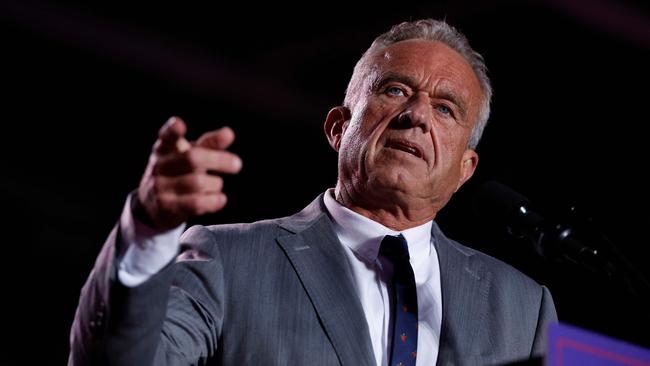
In the looming court of Donald Trump, Robert F. Kennedy, the former Democrat, may well be among the most influential courtiers, be it as a member of cabinet, senior adviser to the White House or a “something tsar” with a prominent bully pulpit.
Even when the scion of the illustrious Kennedy family was running against him for president, Trump was reluctant to criticise him, despite polls that suggested he stole more votes from Trump than the Democrats. In his election night address to the faithful in Palm Beach, Trump singled out Kennedy in his speech.
“He’s going to help make America healthy again, he’s a great guy and he really means it; he wants to do some things and we’re going to let him go to it … Bobby, stay away from the liquid gold. Other than that, go have a good time, Bobby,” Trump said, teasing the veteran environmental lawyer about his aversion to fossil fuels.
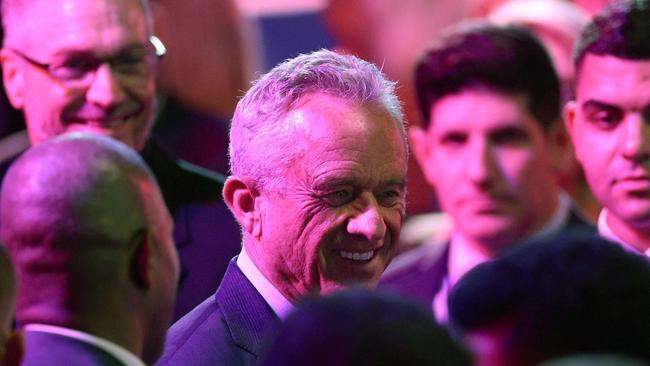
For years Trump has been on good terms with Kennedy, whom he admires and reportedly wanted as his first choice for running mate. Trump loves celebrity and aesthetics which Kennedy, at 70 and fit as fiddle, with glamorous TV star wife Cheryl Hines, delivers in spades.
Trump is grateful to Kennedy, who was polling around 5 per cent as an independent, for joining his campaign, which potentially delivered Trump not only the electoral college but pushed the Republican leader’s vote share above 50 per cent.
Polymarket, a prominent political prediction market, which accurately predicted the outcome of the presidential election, put the chance of Kennedy’s elevation to cabinet near 80 per cent on Friday.
In recent days Kennedy himself has boldly staked a claim to “a big role” in the incoming Trump administration, which Trump hasn’t denied. Having won the Senate, Trump would have no difficulty confirming Kennedy to a cabinet post.
“I’m confident that if I wanted to do health and human services secretary, the president would fight like hell to make that happen … I want to be in the White House, and he’s assured me that I’m going to have that,” Kennedy told Fox News two days before the election.
“I want to be in the position where I’m most effective to end the chronic disease epidemic.”
He told MSNBC the day after the election he would try to sack entire divisions within the powerful US Food and Drug Administration, which he claims is corrupted by the excessive influence of big food and pharmaceutical companies.
Kennedy’s eclectic interests and strong views will cast a shadow over three critical areas of policy: health, foreign affairs and censorship. The day after the election Jamel Holley, a former New Jersey assemblyman and an adviser to Kennedy, said five chief executives of major pharmaceutical companies had held an emergency teleconference.
“A lawyer has confirmed that everyone is in a state of panic,” he posted on social media.
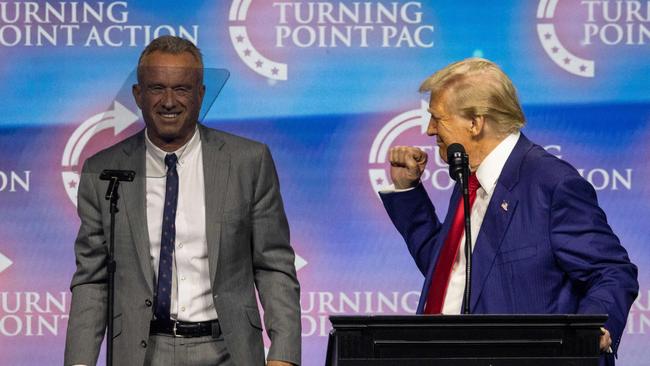
True or not, the sector must be worried: Kennedy, after years as an environmental campaigner and lawyer who won a series of high-profile cases against big polluters, including agriculture giant Monsanto, has turned his crosshairs towards big pharma, in particular its vaccines.
Kennedy argues, correctly, that mandatory vaccines have not been tested in double-blind placebo trials to the same standard as other pharmaceuticals, and that a 1986 US law that shielded vaccine manufacturers from any liability for injury their products caused created a powerful incentive for highly lucrative vaccines to make their way on to the childhood-vaccine schedule.
According to Kennedy, children are now required or recommended to take 72 vaccine shots by the end of their teenage years, up from five in the 1960s, which he controversially claims has contributed to the undeniable and shocking chronic disease epidemic in the US.
Kennedy excoriated Covid vaccines in particular, which he, and a minority of scientists and doctors, argued should not have been forced on the entire population, where they have caused significant and sometimes severe injuries.
Leaked phone conversations between Kennedy and Trump from July strongly suggest Trump agrees.
“I agree with you, man. Something’s wrong with that whole system … When you feed a baby, Bobby, a vaccination that is like 38 different vaccines and it looks like it’s meant for a horse, not a, you know, 10-pound or 20-pound baby … It’s so massive and then you see the baby all of a sudden starting to change radically. I’ve seen it too many times,” the soon-to-be 47th president said.
Since Trump’s election win, cable news in the US, more than half of whose advertising depends on pharmaceutical companies, has been freaking out about Kennedy, smearing him and his ideas daily.
“There are only two countries in the world that allow pharmaceutical companies to advertise on the TV, New Zealand and the US,” Kennedy routinely claims.
Unlike during his first term, Trump cannot run for re-election, is unlikely to be removed from office and is no longer beholden to donors or corporations, which could explain any panic proliferating among the ranks of pharmaceutical company executives.
Kennedy also has become a highly vocal critic of US support for Ukraine, arguing NATO’s plan to bring the former Soviet nation into the US-led bloc, which would pave the way for US troops and missiles on the Russian border, has triggered an unnecessary and bloody war. Ending the war, as he has promised, will be Trump’s first big political test.
Reports proliferated on Thursday that Kennedy was urging Trump not to appoint Florida senator Marco Rubio or Mike Pompeo as secretary of state, preferring someone who was “less neo-con”.
Kennedy is also a strident champion of free speech, having been personally censored during Covid, and a high-profile critic of Google and Meta, which he argues have become an Orwellian arm of government and big business.
Jenin Younes, a senior lawyer at the New Civil Liberties Alliance, which underpinned a historic but ultimately inconclusive Supreme Court censorship case against the Biden administration, tells Inquirer Trump may aim to “dismantle the sprawling censorship apparatus, which operates across at least a dozen federal agencies”.
“The new Trump administration has a golden opportunity to reject the Biden- Harris administration’s unconstitutional censorship regime, which successfully silenced politically disfavoured views,” Younes says.
Kennedy also will push hard for Trump to follow through with his promise, unfulfilled during his first term, to release the entirety of the remaining files related to the assassination of his uncle, president John F. Kennedy.
Robert Kennedy has long argued the CIA at least knew more about the assassination plot than it revealed to the investigating Warren Commission.
It’s hard to dislike Kennedy; rather than living an indolent, luxurious life trading on the family name, he has launched himself into a series of battles with powerful corporations over many years, attracting many powerful enemies for causes he truly believes in.
He’s well read, sincere and eloquent, whatever you may think of his claims.
Who knows what RFK expected to achieve from his independent presidential campaign, which had little hope of success outside the power structures of the two major political parties, and given the vicious and unrelenting animosity of mainstream media.
He couldn’t have done much better than becoming arguably one of the most powerful cabinet secretaries in a Trump administration where Republicans control both houses of congress. The two alpha males could fall out spectacularly but, if not, it’s going to be a wild ride for big tech, the military-industrial complex and pharmaceutical giants.


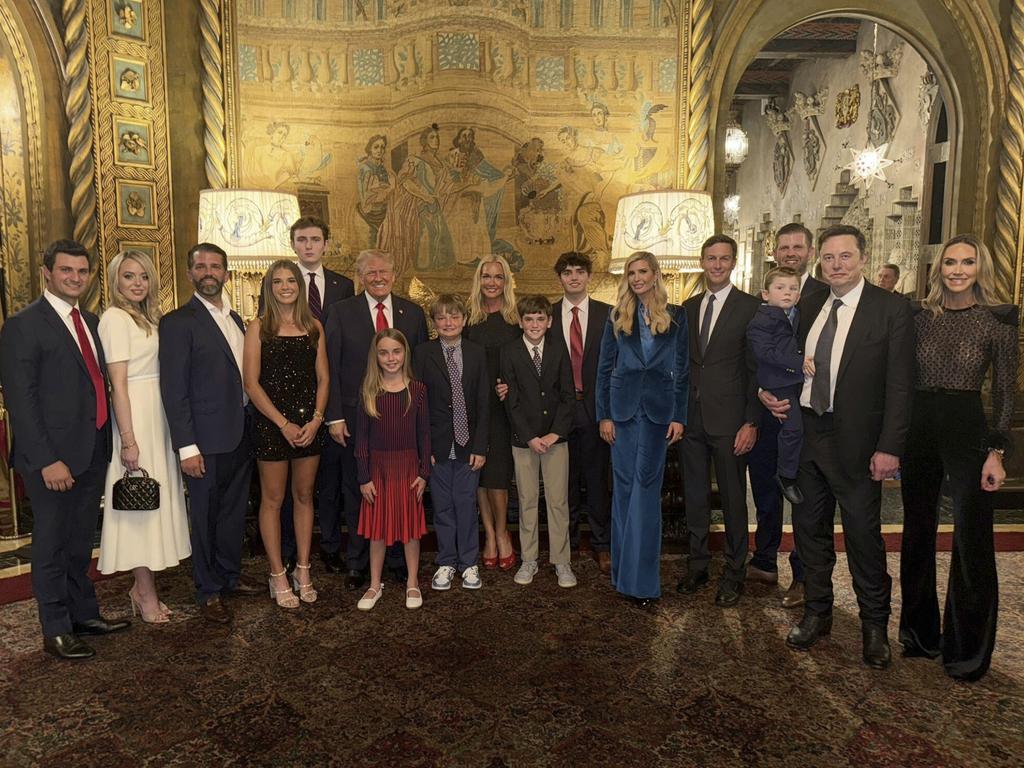
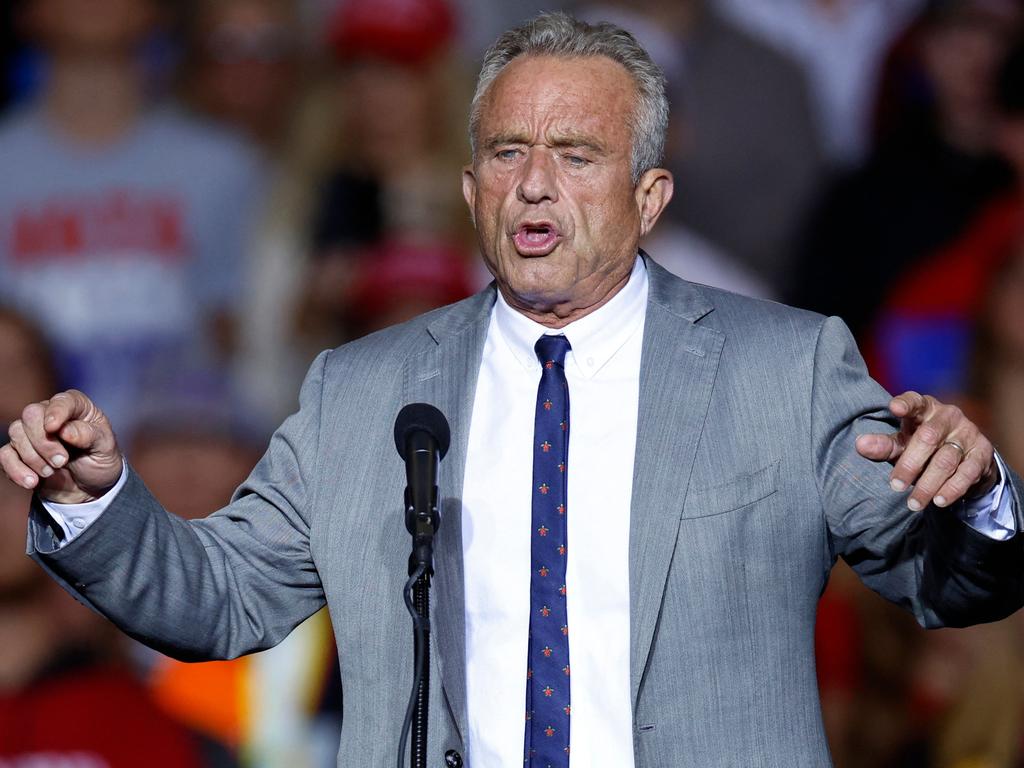



To join the conversation, please log in. Don't have an account? Register
Join the conversation, you are commenting as Logout